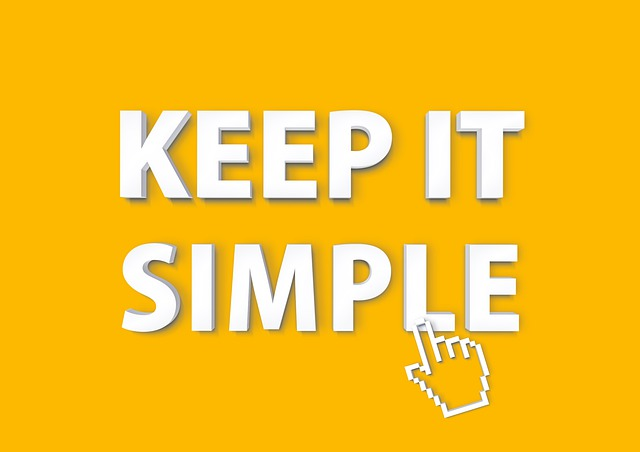Do you feel like your partner is pulling away from you? Do they seem emotionally distant and you can’t tell why? Do they seem less interested in spending time with you than they used to be? You are not alone.
Unfortunately, emotional withdrawal and unavailability are not uncommon in relationships. Sometimes it might feel like the distance gradually creeps up, the chasm of disconnect growing slowly. Other times, it may feel like a switch has flipped. Either way, it is easy to feel rejected and neglected when you love an emotionally unavailable person.
Building intimacy in a relationship is hard, to begin with, but when the emotional gap becomes too wide, both you and your partner may start to feel isolated, lost, and confused. Even in healthy relationships, this ebb-and-flow of connection can be normal.
The important thing is that you recognize when the ebb-and-flow is drifting your partner’s boat out to sea, and to understand how and when to help them tether it back to the dock.
It’s also important to know that for you, the one who loves an emotionally unavailable person, self-care, self-awareness and understanding the reality of the relationship are essential.
Keep reading to learn why people become emotionally distant and what you can do about it.

Why Is My Partner Distant?
Emotional drifting can occur for numerous reasons.
Sometimes it is the emotionally unavailable person who carries the majority of responsibility for the distancing. They have taken steps back for reasons that are private, maybe unrelated to their partner, or maybe for reasons related to their deep past.
Other times the person may be distancing themselves as a response to their partner’s intensity. Emotional distance in this case may be a rational response to being overloaded by needs, expectations, or emotional engulfing.
Every relationship is different and each time a partner is emotionally withdrawn, the circumstances are unique.
While it’s easy to believe that only one side of the relationship is to blame, it’s important to understand that nurturing a healthy bond takes two, and both you and your partner may have contributed to the intimacy issues.

Causes Of Emotional Distancing

There are many reasons that you may be dealing with distance and lack of emotion from a partner. Too many, in fact, to list. Some of the more common ones, however, are….
- Your partner needs some time alone. When you’re in a relationship, it can be difficult to find an opportunity to spend some quality time on your own, especially if you have children. If you notice your partner is spending more time on their phone or playing video games, they may be craving some time off.
- They are under a great deal of stress. Emotional withdrawal is a common mechanism for coping with stress. Your partner may be experiencing some turmoil in their personal or professional life which may be causing them to pull away from you. Try talking to them about the levels of stress in their life.
- They may not feel the same way anymore. If you’ve been together for a while and haven’t really worked on deepening intimacy, it’s possible that your partner has mixed feelings about the relationship. Have a serious, open and honest conversation about it, but give your partner some time to prepare.
- They have an underlying issue that they have not shared. Often when a person is faced with a challenge like a physical health diagnosis or a mental health issue, they create some distance that feels protective. They may need to evaluate, and process what’s happening for them in a way that creates emotional unavailability.
- Long term relationships sometimes grow stagnant. Have you and your partner become roommates or buddies instead of emotionally connected partners? For example, an emotionally unavailable husband may have a nonchalant response to an idea for a passionate activity that he and his partner enjoyed 10 years ago. See if you need to work to reignite passion.
- You’ve entered a pursuer-distancer cycle. Your partner may consider you to be too needy and may withdraw because of it, which causes you to feel even more worried and abandoned, and in turn needier. If that’s the case, you can try to pull back for a while and see if anything changes. If you can’t pull back – it may be a sign that you have some attachment challenges that need to be addressed. If you see yourself in this description, a support group, couples therapy, or a relationship coach may be helpful.
- You’ve entered a criticism-withdrawal cycle. This relationship dynamic develops when one partner in a relationship becomes highly critical of the other, constantly making them feel inadequate. The criticized partner then withdraws further and creates a deeper gap. If you’ve been harsh with your partner, try to be more gentle and see how it goes.
- Their vulnerability pacing is very different than yours. If you tend to disclose a lot about yourself right away and feel like you attach quickly to people, you may feel rejected or neglected by a partner that wants more emotional open space. It’s possible that they aren’t emotionally unavailable – they’re just emotional crawlers when you may be a sprinter. Have a conversation about this and see if you might shift your expectations.
- They are overwhelmed by the realities of emotional intimacy. Many people long for relationships and emotional connection but get paralyzed by the actual experience. Personal circumstances like traumatic previous relationships or having been raised by emotionally unavailable people can cause someone to reflexively hold someone at arm’s length – even when they love the person.

What Are The Signs Of Emotional Unavailability?
Some individuals are naturally better at expressing their emotions and thoughts outwardly. While you may feel like you wear your heart on your sleeve, your partner may not be as comfortable with showing their feelings. If you feel like your partner is distant, look for these telltale signs of emotional unavailability:
- They can’t describe their emotions
- They struggle with showing affection
- They aren’t comfortable talking about your emotional issues
- They don’t give you emotional support
- They become defensive when you bring up issues in your relationship
- They invalidate your feelings
- They are often too busy to spend quality time with you
- The relationship feels one-sided
The first step towards bridging an emotional disconnect in your relationship is recognizing that there is a problem. If you are struggling to build a healthy relationship with your partner, consider reaching out to a professional relationship coach. With expert help, you will better understand the root causes of your relationship issues and discover ways to work together with your partner to change your relationship for the better.
What Does Stonewalling Someone Mean?
Does your partner avoid any sort of discussion or cooperation when it comes to resolving emotional issues? They may be resorting to a defense-mechanism called stonewalling. A person who stonewalls will withdraw when you bring up a problem, dismissing your words and invalidating your feelings. They may say something like “you’re being unreasonable” or “you’re blowing things way out of proportion”, etc.
You may encounter stonewalling whether you’re trying to address a concern in private or with a relationship coach. If your partner relies on deflection to render any discussion irrelevant or insignificant, it can be difficult to come up with any kind of solution which can make you feel frustrated, unheard, and confused.
Sometimes this happens because an emotionally unavailable partner is completely “checked out” of the relationship and doesn’t want to bother with these kinds of challenging topics.
Other times, this happens because a person may have a very hard time being vulnerable and may have no idea how to express a crucial emotion like sadness or pain. Things like trauma, family of origin issues, previous emotionally unsafe relationships, or a lack of skill in how to express emotions can contribute.
People in this category may stonewall because they are terrified of being emotionally linked with someone else. The idea of needing their partners for emotional fulfillment is frightening, because it can always go away. They may also be scared of emotional responsibility that comes with deeper connection to their partners.
Emotionally unavailable people like this often come across as not having very much depth, but often they are lonely and emotionally isolated.

How Do You Deal With An Emotionally Distant Partner?
If you’re struggling to maintain a healthy relationship based on trust and emotional support because it is difficult for one or both of you to open up and work out the issues, don’t feel lost. Many individuals drift apart over time, but that doesn’t mean that things can’t change. Sometimes, a shift in the way you talk to your partner may make a world of difference. Try the following tips:
- Accept differences
Your partner may simply be more private than you by nature. That doesn’t mean that they don’t care about you, but only that your communication styles are different.
- Don’t demand connection
It’s unlikely that you’ll get your partner to change their ways if you constantly try and force them to open up. It often creates more conflict. Instead, try to take their need for privacy less personally and let them communicate at their own pace.
- Create a self-care plan
You may benefit from doing some purposeful activities that ease the pain of having an emotionally unavailable partner. Time with friends, family or animals may be important. Talking to a relationship therapist or mental health expert about what you’re experiencing may help you feel like another person is really able to see you.
- Give them some space
Similarly, your partner may be more willing to share their thoughts with you if they don’t feel suffocated in the relationship. Try to pull away for a bit and see if anything changes. Notice what comes up for yourself. You may need to build your tolerance for individual autonomy in the relationship.
- Try not to criticize
If you make your partner feel inadequate by constantly pointing out their flaws and mistakes, they will only withdraw further. Look for better understanding rather than fault and blame. Approach your discussions calmly, without resentment and bitterness, and be open to your partner’s feedback. Compassionate clarity is always better than brutal honesty.
- Focus on your own goals
Your relationship doesn’t always have to be the focus of your attention. Come back to your own interests and hobbies. This is not the same as “I’ll ignore them and show them how it feels.” This is intentional self-development. Think “meeting my own needs.”

Keeping the Emotional Language Simple
Keeping the emotional language very basic and elementary is one of the first, best steps in dealing with an emotionally unavailable partner.
If you’re in a partnership with someone who may struggle to identify their own feelings, it’s helpful to keep the emotionally charged conversations simple. For example, when you are attempting to resolve conflict by front-loading the conversation with a lot of information about your feelings, you may take a lot of time explaining what you’re experiencing.
There is even a tendency many people have to over-explain their feelings if they have a relationship history with an emotionally unavailable partner.
You may say things like “I’m feeling disrespected because I can sense you begin to create distance. I only want to share deeper feelings and when you pull away, it activates me because my parents weren’t really there for me emotionally, and I just want to know someone will be there for me…” and on and on.
You pour your heart out and find yourself saying “why are you just sitting there, looking at me?” “Please say something.” “Do you even care about what I just said?”
When your partner is less skilled in identifying their feelings, and less comfortable with a deeper emotional connection, the flood of feelings talk may feel overwhelming. They may not know how to respond at all, which shuts them down and creates more distance.
Saying things like “emotional closeness means a lot to me. Without it, I feel sad” may be much more digestible for your partner. Expressing emotions may have to start with a-b-c’s.

What Can You Do Next?

If you are dealing with an emotionally unavailable partner, you probably feel pretty misunderstood and unseen. The distance can leave you with a constant sense that there’s something wrong with you – that you just have to try harder. You’ve worked so hard to express yourself and you keep coming back to the same place. You haven’t found the right strategy yet to change the emotional unavailability of your partner.
You don’t have to have a master’s degree in psychology to know that, over time, this dynamic can wreak havoc on your sense of self-worth and your confidence. If you feel this way, it’s a clear sign that you need support.
Feeling unheard and invalidated in your relationship can cause you a great deal of stress and anxiety. The good news is that things change. With help from our PIVOT coaches, you can reach emotional balance and nurture a healthy and lasting relationship with your partner.
Maybe you’ve done couples therapy before and it hasn’t worked…. this is different.
Or, maybe you’re single but choosing an emotionally unavailable partner has been your pattern. You want to do something intentionally different to make sure that your next potential partner can have an emotionally different presence with you.
At PIVOT, we provide expert assistance to individuals and couples via carefully devised workshops and relationship-building retreats. We are here to help you find fulfillment and happiness in your relationships. Give us a call!